25 Sep 2025
On 22 September, Xi’an Jiaotong-Liverpool University hosted a delegation led by Lee Jae-joon, Mayor of Suwon City in South Korea, with representatives from the Suwon City Government and Suwon Research Institute. At the event, XJTLU signed a memorandum of understanding (MoU) with Suwon to lay the foundation for future collaboration in education, industry partnerships, and urban policy development.
According to the memorandum, XJTLU and Suwon City will jointly launch talent development initiatives and research collaborations focused on sustainable urban development, while fostering knowledge exchange for the Suwon Free Economic Zone (S-FEZ) through academia-industry-government partnerships.
In addition, the two parties will collaborate on cutting-edge research in artificial intelligence, biotechnology, and information technology to drive urban innovation and growth.
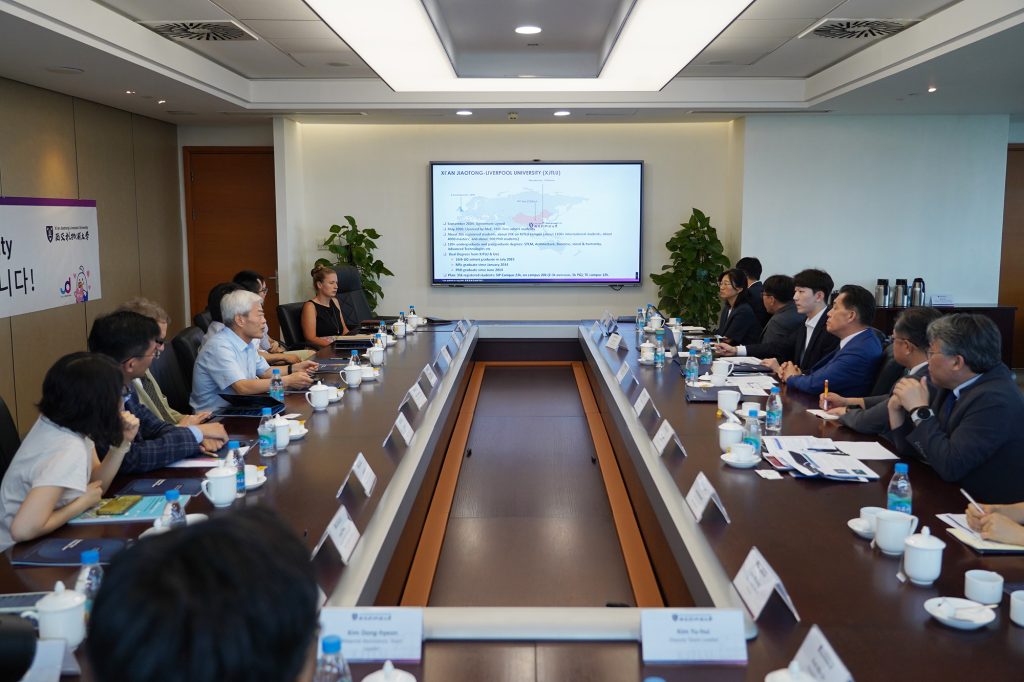
MoU signing ceremony
During the signing ceremony, Professor Youmin Xi, Executive President of XJTLU, highlighted that XJTLU has sought to create distinctive models of innovation since its founding.
“The collaboration with Suwon City builds on over two decades of development and opens a new chapter for international cooperation. Drawing on the successful experience of Suzhou Industrial Park, we hope to establish an internationally influential platform for education and innovation, supporting sustainable urban development for both regions through this collaboration,” he said.
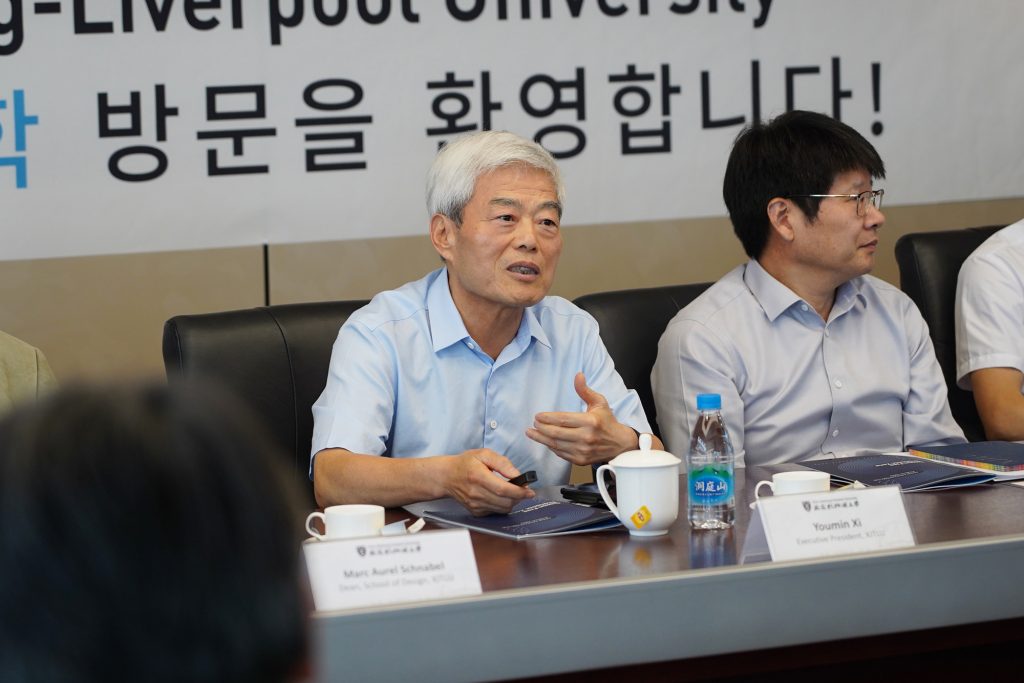
Professor Youmin Xi
Professor Zhoulin Ruan, Vice President of Academic Affairs of XJTLU, said that XJTLU already has a good relationship with South Korea, and that the partnership with Suwon aligns closely with XJTLU’s strategic priorities in artificial intelligence, life and health sciences, and urban innovation.
“Beyond joint research and talent development, there is also potential to offer degree programmes in Suwon, creating new opportunities for educational exchange and building an integrated ecosystem of innovation and learning,” he added.
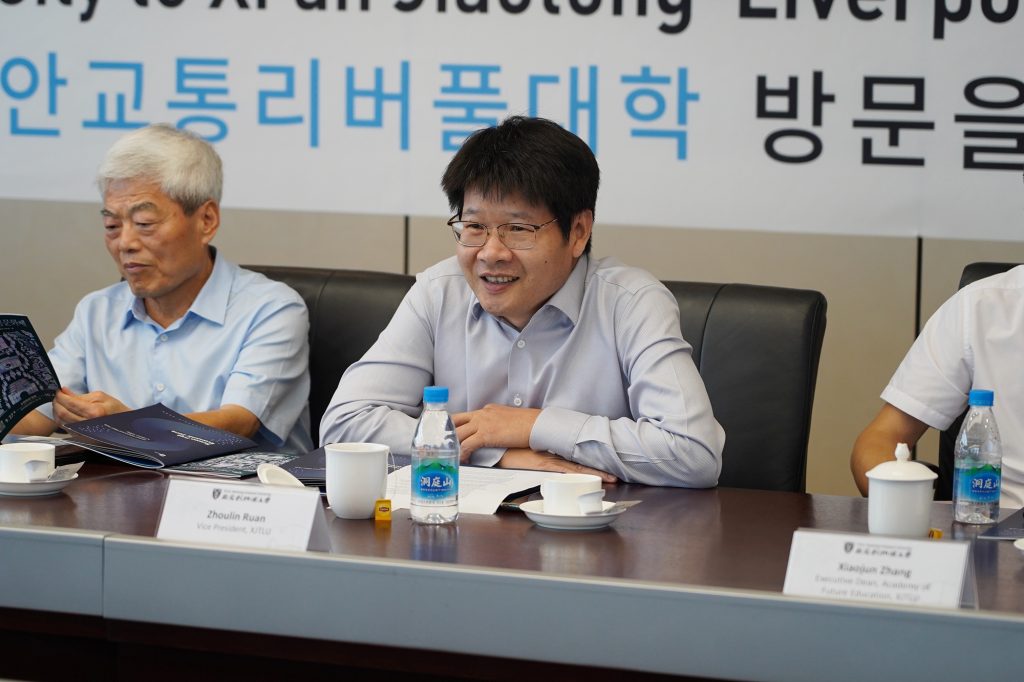
Professor Zhoulin Ruan
Professor Marc Aurel Schnabel, Dean of the Design School at XJTLU, talked about the School’s strong expertise in urban design, sustainability, and liveability.
“Our experience can support Suwon in advancing innovation and economic development while ensuring community well-being. We are eager to work closely with Suwon City through research, education, and practical projects, and to jointly explore sustainable and liveable urban futures,” he said.
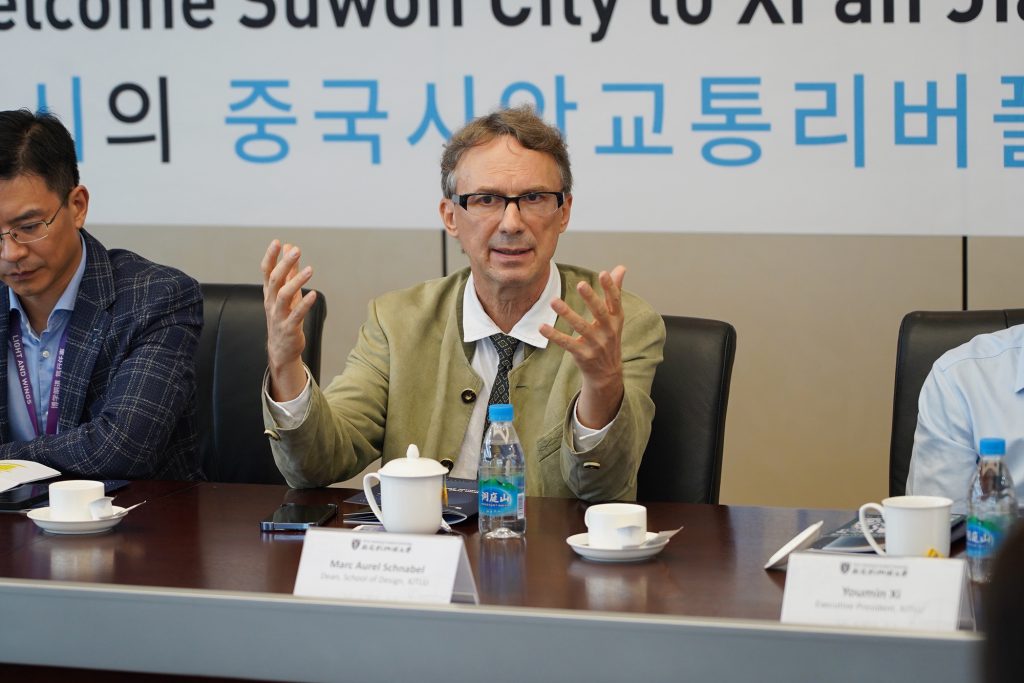
Professor Marc Aurel Schnabel
During the ceremony, the Suwon delegation made a few proposals, including assessing the feasibility of an XJTLU campus or research centre in Suwon with programmes linked to strategic industries, promoting S-FEZ as a gateway to Northeast Asia for Jiangsu-based enterprises considering overseas expansion, and launching collaborative research and consulting projects on free economic zones.
Mayor Lee said: “The cooperation will connect Suwon to a global education network, and represents a forward-looking model that connects education, industry, and policy development. We hope to jointly create an innovative ecosystem that benefits both our communities.”
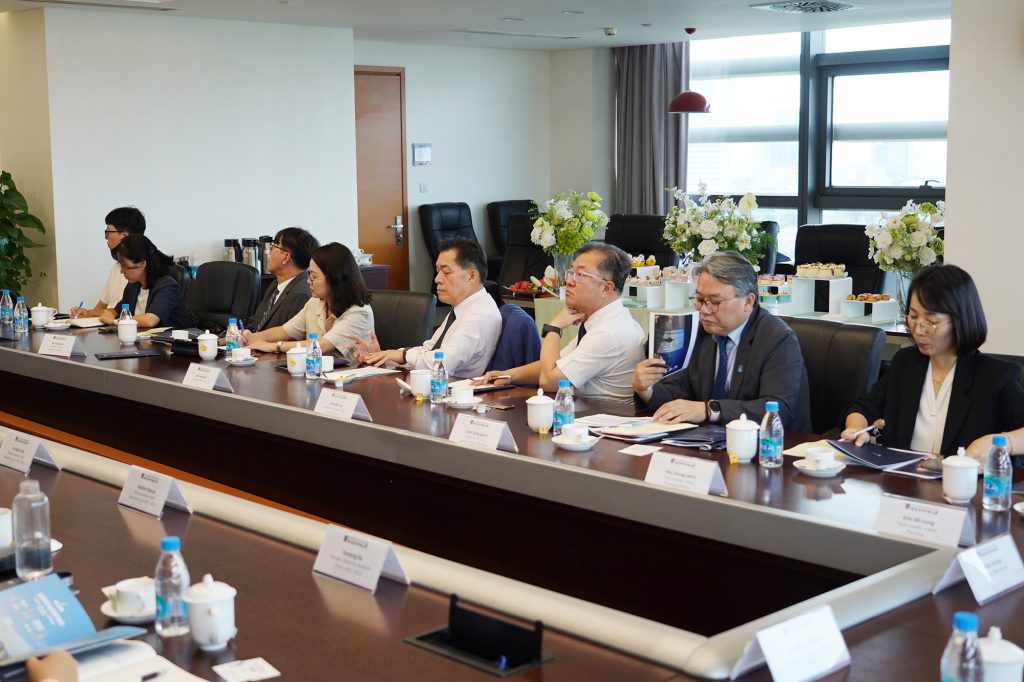
The Suwon City delegation
In addition to the signing, the Suwon City delegation attended an expert meeting hosted by XJTLU’s Department of Urban Planning and Design. Discussions centred on free economic zone management, global investment attraction, urban and living infrastructure planning, and academia-industry-research collaboration models. Qining Chen, Chairman of SCP Consultants Private Ltd, and Xianji Jin, Founder of Suzhou Yushi Enterprise Management Consulting Co., Ltd, were invited to share their experiences and insights.
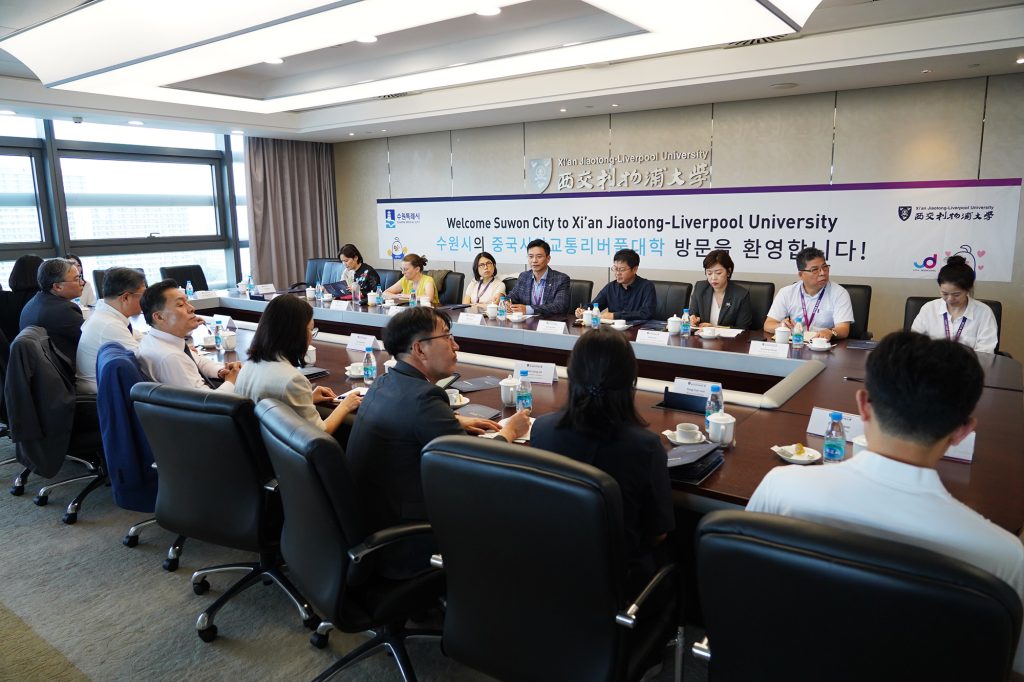
The delegation also received an interim report on the ongoing project commissioned by Suwon, titled “Monitoring Smart Inclusive Transition (SIT) towards Equitable Urban Futures”.
Led by XJTLU researchers who worked together with Seoul National University, the initiative focuses on developing a diagnostic framework for Suwon City to establish inclusive, people-centred smart urban development. The research aims to support the localisation of the Sustainable Development Goals (SDGs) with UN-Habitat. It will contribute to the development of SIT as a practical reference for other cities in the coming years.
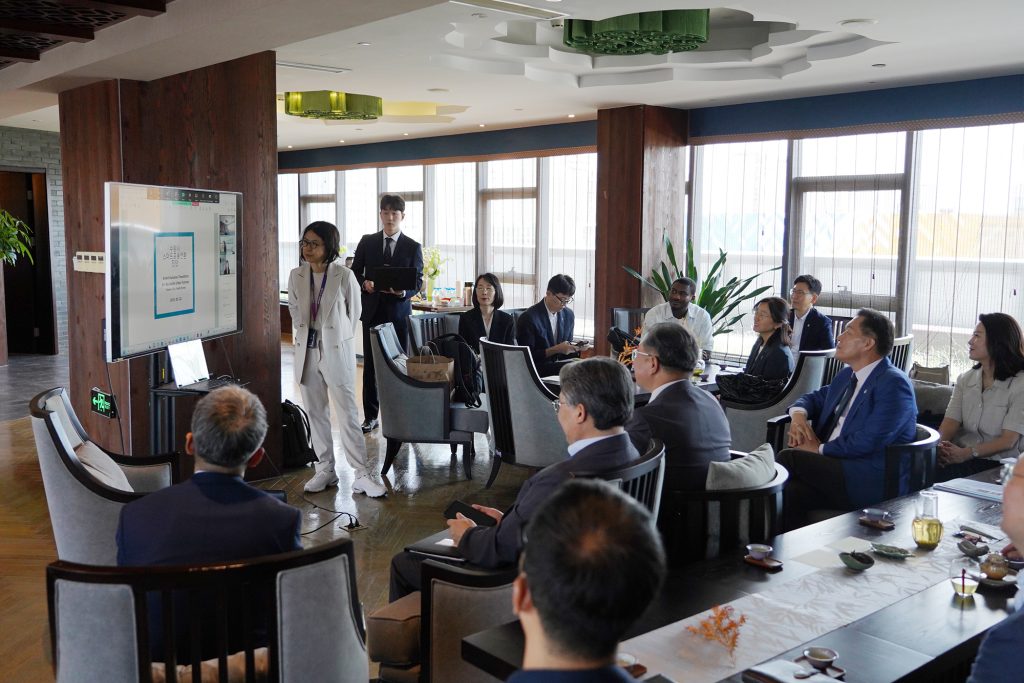
By Yi Qian
Photos by Yi Qian
Edited by Patricia Pieterse
25 Sep 2025







